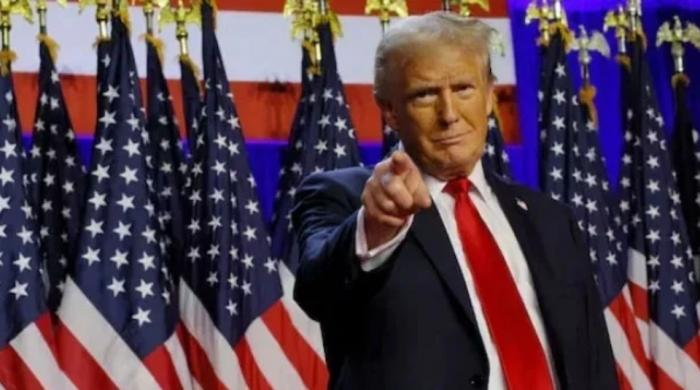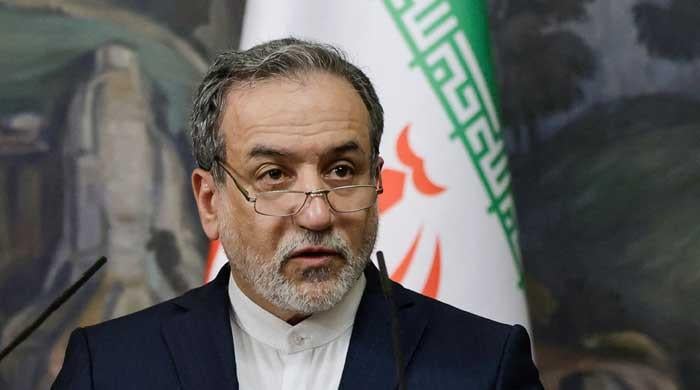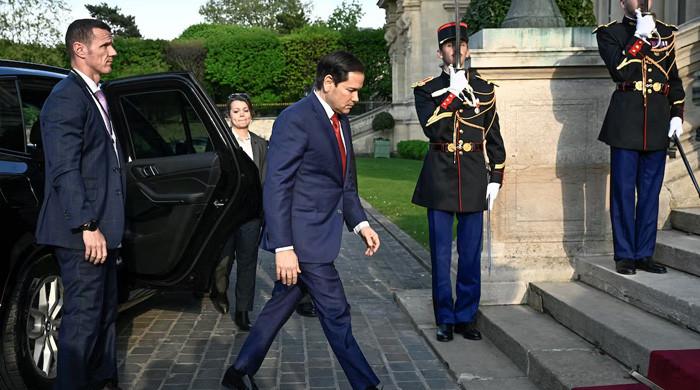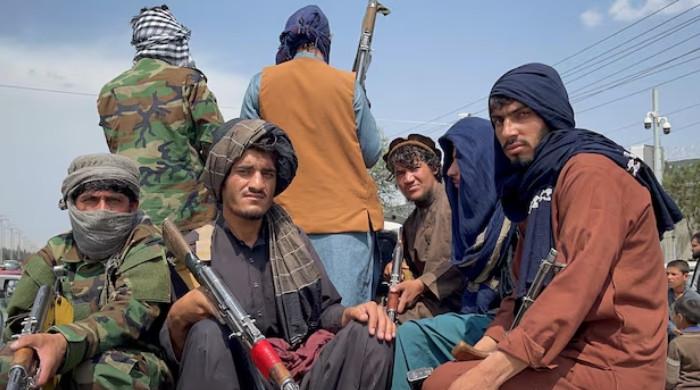Biden to formally announce withdrawal of all US troops from Afghanistan
US plans to end the longest war and looks to close the book on 20 years of America's military involvement in Afghanistan
April 14, 2021
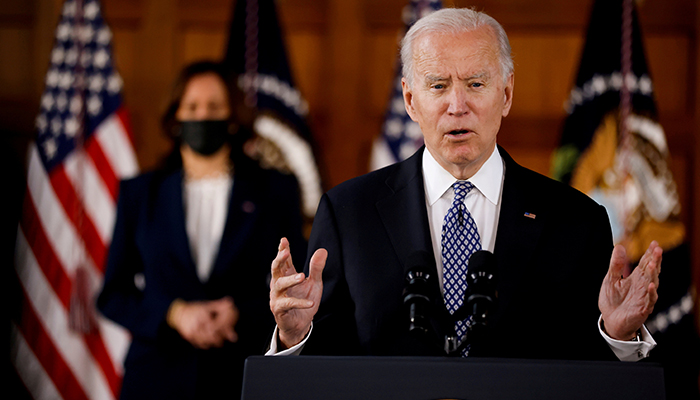
- US plans to end the longest war.
- Critics have raised their voices against withdrawal of American troops from Afghanistan.
- Troops' withdrawal planned for Sept 11.
WASHINGTON: US President Joe Biden will declare it is "time for American troops to come home" from Afghanistan, as the US plans to end the longest war and looks to close the book on 20 years of US military involvement there even as critics warn that peace is not assured.
"We went to Afghanistan because of a horrific attack that happened 20 years ago," Biden will say, according to excerpts of his speech released by the White House. "That cannot explain why we should remain there in 2021."
Biden is set to announce in a speech scheduled for 2:15 p.m. EDT (1815 GMT) at the White House that all 2,500 US troops remaining in Afghanistan will be withdrawn no later than September 11. By pulling out without a clear victory, the United States opens itself to criticism that a withdrawal represents a de facto admission of failure.
"I am now the fourth American president to preside over an American troop presence in Afghanistan. Two Republicans. Two Democrats," Biden will say. "I will not pass this responsibility to a fifth."
"It is time to end America's longest war. It is time for American troops to come home," he will say.
September 11 is a highly symbolic date, coming 20 years to the day of al Qaeda's attacks on the United States that prompted then-President George W. Bush to launch the conflict. The war has cost the lives of 2,400 American service members and consumed an estimated $2 trillion. US troop numbers in Afghanistan peaked at more than 100,000 in 2011.
Secretary of State Antony Blinken met with officials at NATO headquarters in Brussels on Wednesday, saying foreign troops under NATO command in Afghanistan will leave the country in coordination with the US withdrawal by September 11, after Germany said it would match American plans.
Blinken also spoke by phone with Pakistan's army chief on Wednesday and discussed the peace process, according to a statement from the media wing of Pakistan's military.
The Democratic president had faced a May 1 withdrawal deadline, set by his Republican predecessor Donald Trump, who tried but failed to pull the troops out before he left office. Biden's decision will keep troops in Afghanistan past that deadline, but officials suggested troops could fully depart before September 11.
There is a summit planned about Afghanistan starting on April 24 in Istanbul that is due to include the United Nations and Qatar.
The Taliban, ousted from power in 2001 by US-led forces, said it would not take part in any meetings that would make decisions about Afghanistan until all foreign forces had left the country. Taliban spokesman Zabihullah Mujahid on Wednesday called on the United States to adhere to the deal the group reached with Trump's administration.
"If the agreement is committed to, the remaining problems will also be solved," Mujahid wrote on Twitter. "If the agreement is not committed to ... the problems will certainly increase."
In Afghanistan's capital of Kabul, officials said they would carry on with peace talks and their forces defending the country.
"Now that there is an announcement on foreign troops withdrawal within several months, we need to find a way to coexist," said Abdullah Abdullah, a top peace official and former presidential candidate. "We believe that there is no winner in Afghan conflicts and we hope the Taliban realize that too."
Waheed Omer, director of the Afghan government's public affairs office, said Afghan President Ashraf Ghani would speak with Biden in the near future to discuss the withdrawal plan. Omer said Afghan forces have been carrying out the vast majority of operations on their own and would continue to do so.
Uncertain fate
Some analysts said the departure plan appeared to surrender Afghanistan to an uncertain fate.
"There is no good way that the US can withdraw from Afghanistan. It cannot claim victory, and it cannot wait indefinitely for some cosmetic form of peace," said Anthony Cordesman at the Center for Strategic and International Studies think tank in Washington.
US officials can claim to have decimated al Qaeda's core leadership in the region years ago, including tracking down and killing the group's leader Osama bin Laden in neighboring Pakistan in 2011. But ties between the Taliban and al Qaeda elements persist and peace and security remain elusive.
Successive US presidents sought to extricate themselves from Afghanistan, but those hopes were confounded by concerns about Afghan security forces, endemic corruption in Afghanistan and the resiliency of a Taliban insurgency that enjoyed safe haven across the border in Pakistan.
There is concern over the impact a withdrawal would have on human rights in Afghanistan given the gains, particularly for women and girls, during the past two decades.
"I am worried about my future," said Wida Saghar, a writer and women's rights activist in Kabul. "An unknown future awaits us, when foreign forces leave and the civil war intensifies ... then who will think about women's rights? Who will care about us?"





